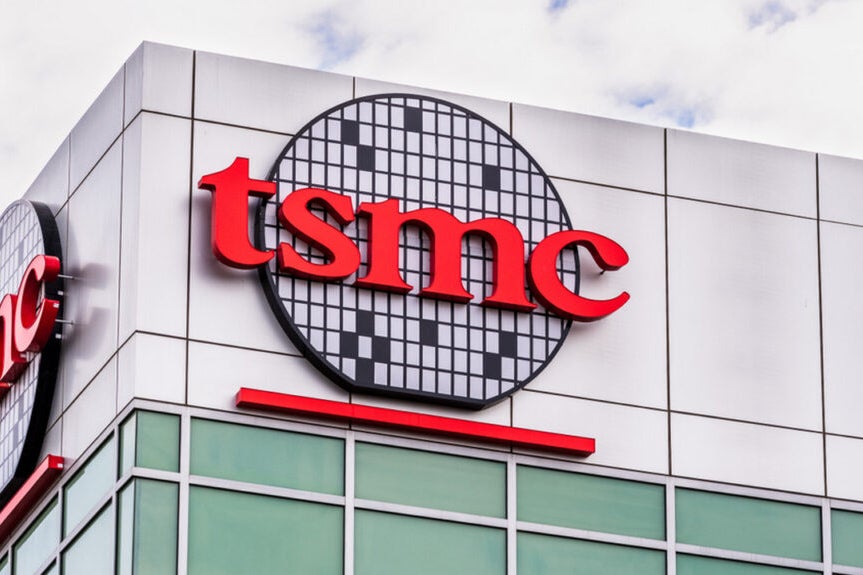TSMC’s Bid for Intel’s US Chip Factories: A Political Gamble?
The semiconductor industry is at a pivotal moment, with geopolitical tensions and national interests colliding in unexpected ways. A recent report suggested that the Trump administration might not support Taiwan Semiconductor Manufacturing Company (TSMC) in its bid to take control of Intel’s US chip manufacturing plants. This development raises critical questions about the future of semiconductor production in America and the implications for the industry and economy at large.
The Landscape of Semiconductor Manufacturing
Semiconductors are the backbone of modern technology, powering everything from smartphones to supercomputers. The global semiconductor supply chain has traditionally been dominated by a few key players, with TSMC being the largest dedicated independent semiconductor foundry in the world. On the other hand, Intel has long been a leader in chip design and manufacturing, particularly in the United States.
However, the landscape is changing. Increased demand for chips, particularly in the wake of the COVID-19 pandemic, has exposed vulnerabilities in the supply chain, prompting nations to reconsider their dependencies. The US government has recognized the strategic importance of semiconductor manufacturing, leading to efforts to bolster domestic production.
TSMC’s Intentions and Strategic Moves
TSMC’s interest in acquiring Intel’s US chip factories aligns with its broader strategy to expand its manufacturing capabilities outside of Taiwan. The company has already invested heavily in building a factory in Arizona, signaling its commitment to increasing its presence in the United States. By taking control of Intel’s facilities, TSMC could potentially enhance its production capacity, reduce lead times, and tap into the lucrative US market more effectively.
However, this bid is not without its challenges. The political landscape in the United States is fraught with complexities, especially concerning foreign ownership of critical infrastructure. The semiconductor sector is viewed as essential for national security, and the potential for a foreign company to control domestic chip manufacturing raises eyebrows among policymakers.
The Political Repercussions of TSMC’s Bid
The Trump administration’s hesitance to support TSMC’s acquisition underscores the delicate balance between fostering economic growth and safeguarding national interests. With rising tensions between the US and China, any foreign investment in critical sectors is scrutinized closely. The semiconductor industry has been a focal point of these tensions, with both nations vying for technological supremacy.
Concerns about intellectual property theft, supply chain vulnerabilities, and national security have prompted the US government to take a more cautious approach to foreign investments, particularly from companies based in countries like China. TSMC, while based in Taiwan, is not immune to these geopolitical dynamics. The administration’s reluctance to back TSMC’s bid could signal a broader trend of protectionism in the tech sector.
The Implications for the Semiconductor Industry
If TSMC’s bid for Intel’s US chip factories is thwarted, the implications could be significant for the semiconductor industry. Here are a few potential scenarios:
- Stagnation of Domestic Production: Without foreign investment, the pace of innovation and production capacity in the US may stagnate, exacerbating the current chip shortage.
- Increased Costs: A lack of competition and investment could lead to higher production costs, impacting prices for consumers and businesses alike.
- Shift in Global Supply Chains: Companies might seek alternative manufacturing partners in regions with more favorable investment climates, further distancing the US from its traditional manufacturing base.
Opportunities Amidst Challenges
While the situation may appear dire, there are also opportunities for growth and innovation within the semiconductor industry. The ongoing push for domestic manufacturing has led to initiatives aimed at fostering a more robust semiconductor ecosystem in the US. The CHIPS for America Act, for instance, aims to incentivize semiconductor manufacturing and research within the country, providing grants and tax incentives to companies that invest in domestic production.
Moreover, the focus on semiconductor manufacturing has opened doors for collaboration between the government and private sector. Companies are increasingly investing in research and development, fostering a culture of innovation that could lead to breakthroughs in chip technology. By prioritizing domestic production, the US could potentially reclaim its position as a leader in semiconductor technology.
Looking Ahead: What’s Next for TSMC and Intel?
The future of TSMC’s bid for Intel’s US chip factories remains uncertain, heavily influenced by political dynamics and market conditions. However, regardless of the outcome, the semiconductor industry is poised for transformation. The interplay between technological advancement and national interests will continue to shape the direction of the market.
For TSMC, the ability to navigate these complexities will be crucial. The company has built a reputation for excellence in semiconductor manufacturing and innovation, but its future in the US may depend on its ability to align its goals with the broader national interests of the United States.
Intel, on the other hand, faces its challenges, particularly as it seeks to regain its competitive edge in the semiconductor market. The company has made strides in recent years to modernize its manufacturing processes and improve its product offerings. Collaborating with TSMC could have provided a strategic advantage, but the political landscape may complicate such partnerships.
Conclusion: A Balancing Act
TSMC’s bid for Intel’s US chip factories presents a unique case study at the intersection of technology and politics. As the semiconductor industry grapples with supply chain challenges and geopolitical tensions, the stakes have never been higher. The outcome of this situation could have far-reaching implications for the industry, the economy, and national security.
Ultimately, the challenge will be finding a balance that fosters innovation and growth while safeguarding national interests. As stakeholders navigate this complex landscape, the hope is that the semiconductor sector can emerge stronger, more resilient, and better positioned to meet the demands of the future.
See more Future Tech Daily

